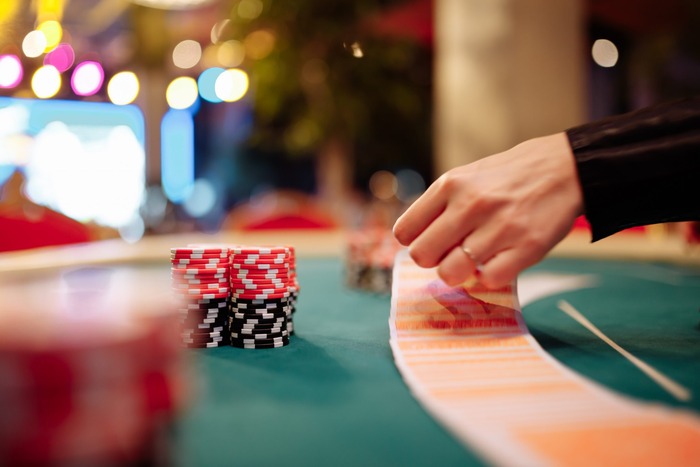The Roots of Gambling: A Deep Dive into Its Ancient History
People have been gambling since they discovered they could throw a rock and have it land in more than one way.
It’s not a metaphor. They were literally throwing bones and pebbles to see what would come out. Sometimes for fun, sometimes to decide who would go to war first, and sometimes because they believed that the gods were sending them messages through those bones.

In other words, gambling is not a modern scourge – it is an ancient, deeply human thing. A mixture of hope, fear, and the need to challenge fate and feel powerful, if only for a moment.
That is why today we will not only talk about the history of gambling but about its roots – about why people gambled 3,000 years ago, what it looked like, and what it says about us today when we have online versions like Bruce Bet Casino. Because if something survives for thousands of years, it must have a purpose. Or at least it serves for a good reason.
Ancient Civilizations and the First Games of Chance
The first thing we need to know: gambling did not originate in Las Vegas. It’s not even in Europe. It originated where almost everything originated – in ancient Mesopotamia, Egypt, and China. When people first sat down to write something clever and make laws, that’s when they rolled the dice.
In Mesopotamia, as early as 5,000 years ago, asymmetrical animal bones were used as dice. They didn’t have casinos, but they had the idea, “Let’s throw this out and see what fate says.” Sometimes, it was in a game, sometimes in a religious ritual, and sometimes in deciding serious matters.
The ancient Egyptians believed that games of chance were associated with the gods. They had board games similar to today’s backgammon and used them not only for entertainment but also for divination. If luck serves you – it means that the god Ra looks favorably on you.
The Chinese? They invented an early version of the lottery over 2,000 years ago. They used it to finance state projects. And yes, probably even then, people complained that “the state always wins”.
The Greeks and Romans went one step further. They had gambling everywhere – in public baths, on the streets, and even in the senate. Interestingly, gambling was officially banned in Rome, but of course, it was widely ignored. They even invented tokens to “circumvent” the law that prohibited money betting. They practically invented the first chips. Witty, isn’t it?
The point? Wherever there were people, there was gambling. No internet, no electricity, no marketing campaigns – people still found a way to take risks and hope. Because gambling is not a product of civilization. It has been her companion since the very beginning.
Psychology of the Ancient Gambler: Risk, Reward and Social Status

Let’s imagine a typical gambler from ancient Greece. He doesn’t have a phone, he doesn’t have a casino, but he has a piece of lead that he throws up and hopes it lands just right. Is he just doing it for fun? Not really.
People have always wanted more than they have – more food, more respect, more power. And gambling was a shortcut. A way to get something quickly, without plowing the field and without fighting. Just throw it and wait. If luck looks at you – you might become the master of the dinner instead of a guest.
But it wasn’t just a matter of winning. It was a test of character. Gambling was associated with bravery and social status. A risk-taker shows that he doesn’t care about losing – which in many cultures means he has the courage and, therefore, respect.
Psychologists today would say that it was a “dopamine circuit.” Expectation, anticipation, excitement. Even when you lose, the brain remembers the moment before you rolled the dice – that feeling of “maybe this time.”
And there is a trap. Because gambling doesn’t just reward winning – it rewards hope. And it pulls us back. Ancient man didn’t know what dopamine was, but he knew that his heart was pounding when it all came down to one throw. And that was enough to make him come back one more time. And one more time.
Problems and Controversies: From Ancient Prohibitions to Modern Challenges
Now, we come to the darker side of the story. Because where there is hope, there is also disappointment. And where there is gain, there is also loss.
The Romans were the first to introduce laws against gambling because they realized that their soldiers and citizens were betting more than they were working. There were even scenes where aristocrats sold estates to pay back gambling debts. Sound familiar?
In ancient China, punishments were known to be brutal. If you were caught organizing an illegal game, you could end up in jail. Or no fingers. Or worse.
The point is – even back then, societies were trying to establish boundaries. To protect people from themselves. But just like today, those attempts often came too late or weren’t serious enough.
What Can History Teach Us About Gambling Today?
If history makes one thing clear, it’s that gambling has never been about money. It’s about hope. About catching luck by the tail. It’s about that fleeting moment where the impossible feels possible and where one small decision can change everything. And in many ways, that’s the allure—it’s not the winnings, but the belief that something greater is just around the corner.
And that doesn’t have to be a bad thing – as long as we know where the line is. Ancient civilizations tried to understand and tame this need. Today, we have more knowledge, more tools, and more awareness.
The question is – will we use them? Or will we, like our ancestors, believe that the next throw is the one that changes everything?
We have more resources than ever before to approach gambling with responsibility. We can set limits, educate ourselves on the odds, and play for enjoyment rather than the hope of a life-changing win. Start playing smart, stay informed, and enjoy your game!






